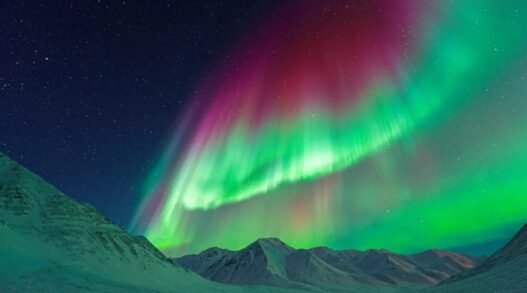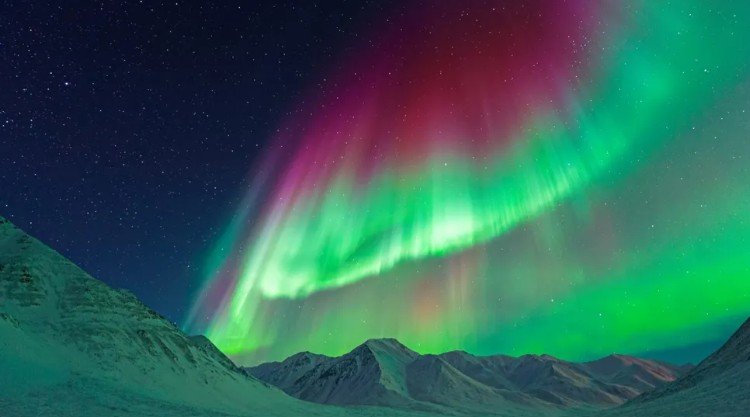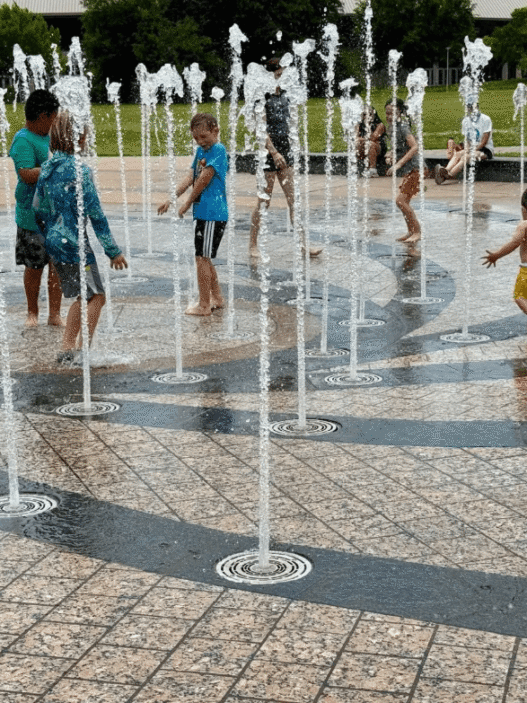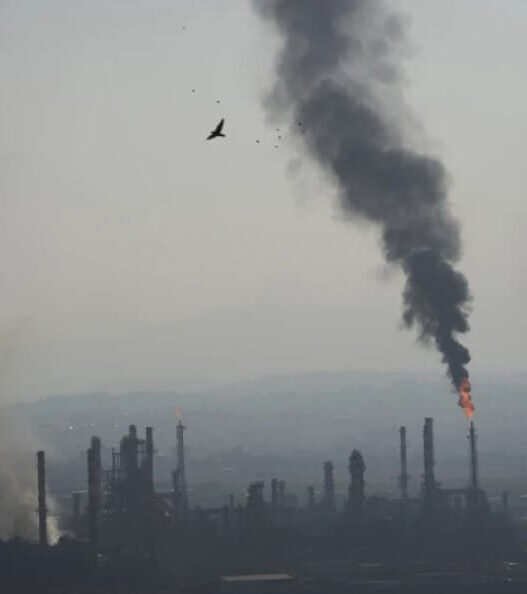A stunning display of northern lights in the US could dazzle stargazers tonight, June 1, as a powerful solar storm continues to stir Earth’s magnetic field. The National Oceanic and Atmospheric Administration (NOAA) has reported that a coronal mass ejection (CME) impacted the planet early this morning, enhancing geomagnetic activity and increasing the chances of auroras reaching farther south than usual.
Solar Storm Triggers Spectacular Auroral Activity
The U.K. Met Office expects frequent G1 to G2-level geomagnetic storms, with possible spikes to G3 or even G4 levels between June 1 and 2. These elevated levels significantly increase the chances of aurora visibility across northern and some central parts of the United States.
According to the NOAA Space Weather Prediction Center, the Kp index, which measures geomagnetic activity on a scale from 0 to 9, could peak at 7.67 in the next 24 hours. A higher Kp index means a better chance of witnessing auroras farther south.
🌐 Stay updated with live forecasts and alerts on 1stnews24.com
Best Time and Places to See the Northern Lights
The best time to spot the northern lights is during the darkest hours — typically between 1 a.m. and 2 a.m. local time. It’s ideal to find a north-facing spot away from city lights for optimal viewing.
Auroras are most likely to appear in Alaska, but if storm levels hit G3 or G4, they could be seen as far south as Pennsylvania and Illinois.
Here’s a full list of the 23 US states where northern lights might be visible tonight (ranked from most to least likely):
-
Alaska
-
Montana
-
North Dakota
-
Minnesota
-
Wisconsin
-
Michigan
-
South Dakota
-
Vermont
-
New Hampshire
-
Maine
-
Idaho
-
Washington
-
Oregon
-
New York
-
Massachusetts
-
Connecticut
-
Rhode Island
-
Nebraska
-
Iowa
-
Wyoming
-
Illinois
-
Indiana
-
Pennsylvania
Keep in mind: auroras can be unpredictable. They may appear further south than expected—or not at all—depending on cloud cover, solar wind intensity, and light pollution.
Track Auroras with These Apps
Want real-time alerts and forecasts? These apps can help:
-
My Aurora Forecast & Alerts (iOS & Android)
-
Space Weather Live (iOS & Android)
Both apps provide personalized aurora forecasts and solar activity updates based on your location.





















